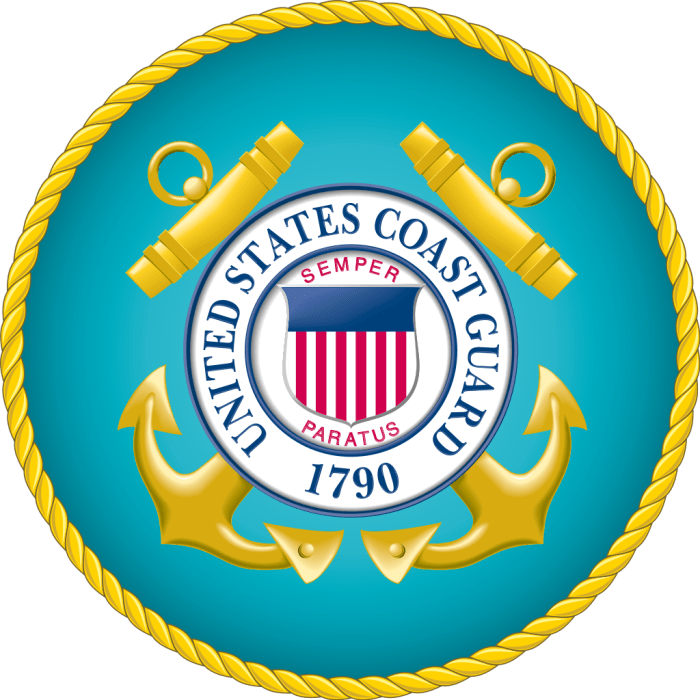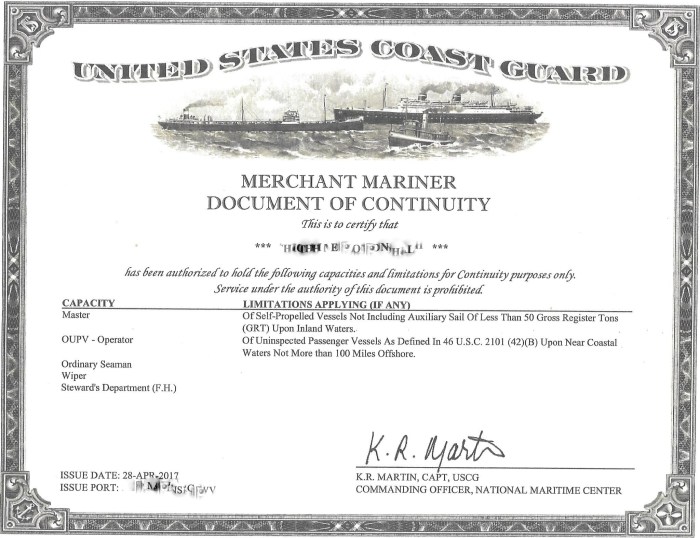The USCG Captains License Practice Test is an essential tool for anyone seeking to obtain their United States Coast Guard (USCG) Captain’s License. This comprehensive practice test provides an accurate representation of the actual exam, allowing you to assess your knowledge, identify areas for improvement, and ultimately increase your chances of passing the official test.
The practice test covers a wide range of topics relevant to the USCG Captain’s License exam, including navigation, vessel operations, and maritime law. By taking the practice test, you can familiarize yourself with the format and content of the actual exam, gain valuable insights into your strengths and weaknesses, and develop effective test-taking strategies.
Introduction

The United States Coast Guard (USCG) Captains License Practice Test is a valuable resource for individuals preparing for the USCG Captains License exam. The test provides a comprehensive review of the knowledge and skills required to obtain a USCG Captains License.
The USCG Captains License is a credential that allows individuals to operate certain vessels in U.S. waters. To obtain a Captains License, individuals must pass a written exam and meet specific requirements, including sea time, training, and experience.
Purpose of the Practice Test
The USCG Captains License Practice Test serves several important purposes. First, it helps individuals identify areas where they need additional study and preparation. The test covers a wide range of topics, including navigation, vessel operations, and safety regulations. By taking the practice test, individuals can identify specific areas where they need to focus their studies.
Second, the practice test helps individuals familiarize themselves with the format and content of the actual exam. The USCG Captains License exam is a challenging exam, and it is important for individuals to be familiar with the types of questions that they will encounter on the exam.
The practice test provides individuals with an opportunity to practice answering these types of questions and to improve their test-taking skills.
Finally, the practice test helps individuals build confidence in their ability to pass the actual exam. By taking the practice test and scoring well, individuals can gain the confidence they need to succeed on the actual exam.
Practice Test Structure and Content: Uscg Captains License Practice Test
The practice test is designed to simulate the actual Coast Guard Captain’s License exam. It consists of multiple sections, each covering different topics relevant to the operation of vessels and the responsibilities of a captain.
The sections of the practice test include:
- Navigation:This section covers topics such as chart reading, plotting, and piloting, as well as electronic navigation systems.
- Seamanship:This section covers topics such as boat handling, mooring, anchoring, and towing.
- Safety:This section covers topics such as fire prevention, damage control, and emergency procedures.
- Environmental Protection:This section covers topics such as pollution prevention and response.
- Regulations:This section covers topics such as navigation rules, vessel inspections, and licensing requirements.
Benefits of Taking the Practice Test

Utilizing the practice test provides numerous advantages for effective preparation for the USCG Captains License exam. It serves as a valuable tool for:
Identifying Areas for Improvement
The practice test offers a comprehensive assessment of one’s knowledge and understanding of the exam material. By taking the test, individuals can identify specific areas where they excel and areas that require further study and improvement. This allows them to focus their preparation efforts efficiently, ensuring that they are well-prepared for the actual exam.
Tips for Taking the Practice Test
The USCG Captains License Practice Test can help you gauge your readiness for the actual exam and identify areas that require further study. To optimize your performance, follow these effective test-taking strategies:
Before the test, familiarize yourself with the test format and content to avoid surprises. Manage your time wisely during the test, allocating sufficient time to each question. Carefully read and comprehend each question to avoid misinterpretations.
Time Management, Uscg captains license practice test
- Prioritize questions based on your confidence and time constraints.
- Allocate more time to questions worth more points.
- Use a timer to monitor your progress and stay within the allotted time.
Question Comprehension
- Read each question carefully and identify the key information.
- Underline or highlight important terms and concepts.
- Rephrase questions in your own words to enhance understanding.
Evaluation and Interpretation of Results
Accurately evaluating the results of a practice test is crucial for identifying areas of strength and weakness. By carefully analyzing the test results, you can gain valuable insights into your current level of knowledge and understanding, enabling you to focus your preparation efforts effectively.
To evaluate the test results accurately, begin by reviewing the overall score. This provides a general indication of your performance. However, it is equally important to examine the individual questions and identify the areas where you performed well and those where you need improvement.
Identifying Strengths and Weaknesses
To identify your strengths, focus on the questions you answered correctly. Consider the topics and concepts covered by these questions and make a note of them. These are areas where you have a strong understanding of the material.
To identify your weaknesses, analyze the questions you answered incorrectly. Determine the reasons for your errors, whether it was a lack of knowledge, misunderstanding of the concept, or careless mistakes. Once you have identified your weaknesses, you can develop a targeted study plan to address these areas.
Additional Resources

The preparation for the USCG Captains License exam requires comprehensive study and practice. In addition to the practice test discussed, there are various other resources available to enhance your knowledge and improve your chances of success.
Online Courses
Online courses offer structured learning modules, interactive exercises, and expert guidance. They provide a convenient and flexible way to study at your own pace and access resources from anywhere.
Study Guides
Study guides provide comprehensive coverage of the exam topics, including detailed explanations, practice questions, and exam strategies. They serve as a valuable supplement to your practice test and help you focus on key areas.
Books
Books offer in-depth knowledge on specific topics related to the exam. They provide detailed explanations, real-world examples, and insights from experienced mariners.
Maritime Schools
Maritime schools offer formal training programs that cover the entire curriculum for the USCG Captains License exam. These programs typically include classroom instruction, hands-on training, and practice tests.
Online Forums and Communities
Online forums and communities provide a platform for mariners to connect, share knowledge, and ask questions. They can be a valuable resource for getting advice, insights, and support from experienced professionals.
Helpful Answers
What is the purpose of the USCG Captains License Practice Test?
The USCG Captains License Practice Test is designed to provide candidates with a comprehensive assessment of their knowledge and skills in preparation for the official USCG Captain’s License exam.
What topics are covered in the Practice Test?
The Practice Test covers a wide range of topics relevant to the USCG Captain’s License exam, including navigation, vessel operations, and maritime law.
How can I use the Practice Test to improve my chances of passing the official exam?
By taking the Practice Test, you can identify areas where you need additional study and practice, develop effective test-taking strategies, and gain confidence in your ability to pass the official exam.